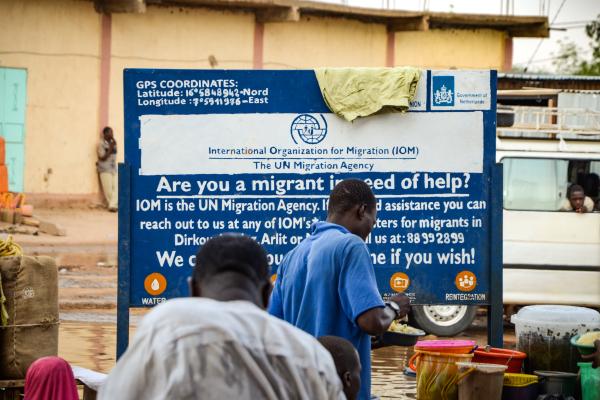
peer reviewed
What promises do humanitarian infrastructures make to encourage migrants to abandon their migration projects? And how do migrants contest these promises? In order to curb EU-bound migration in the transit state Niger, the two UN agencies for migrants and refugees established support and outreach infrastructures that incentivized them to enroll in this humanitarian border and abandon migration. These infrastructural promises prompt their own contestation, because they may not be realized. The International Organization for Migration gave promises of assistance, the voluntariness of the return decision to the country of origin, and reintegration support. The United Nations High Commissioner for Refugees promised assistance, livelihood, and resettlement to asylum seekers and refugees. When these promises failed, migrants exposed the hidden standards of admission and operation of the humanitarian border infrastructures and the histories and political geographies of border violence and displacement they operated in. Through practices of voice and exit, migrants engaged in material politics that made the absent information visible. They thereby ultimately refused or even altered the services, promises, and actor roles of the humanitarian border. An analysis of such contested promises deepens an understanding of the relationships between humanitarian border infrastructures, their future orientations, and everyday migrant resistance.
